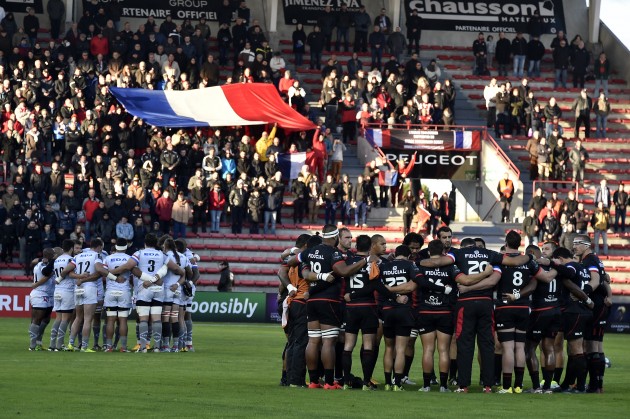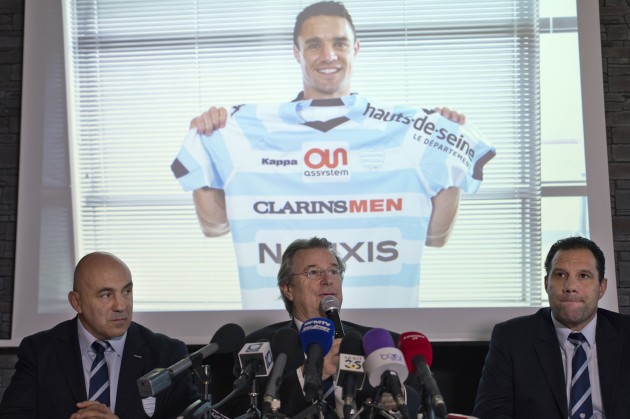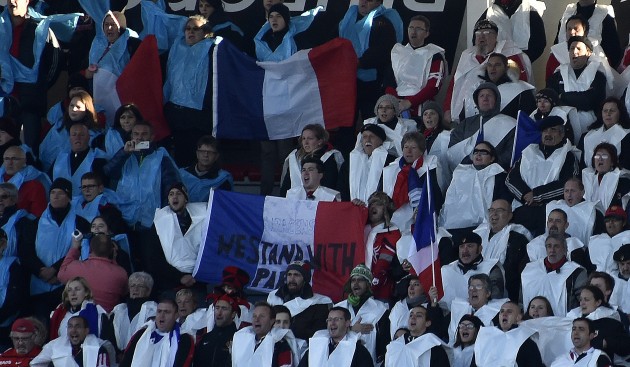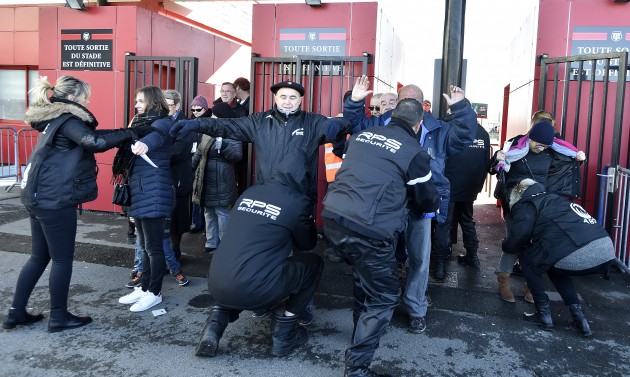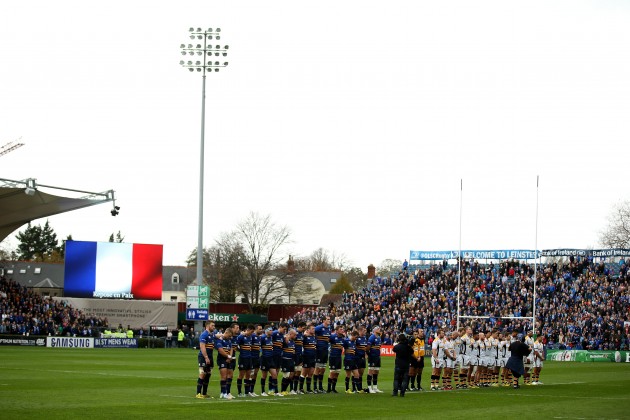After the barbaric attacks of November 13, French rugby is attempting to move forward starting with Racing 92 hosting Toulouse in Paris
Racing 92 host Toulouse on Saturday afternoon. It will be an emotional occasion, the first professional rugby match to be played in the Parisian region since the murderous ISIS attacks of November 13th, and a game that is suffused with hope. Hope for the city and its inhabitants, that life is slowly returning to normal, and hope in a sporting context for Racing, who will introduce Dan Carter to the Yves Du Manoir crowd prior to kick-off.
The All Black World Cup winner will notice a subdued atmosphere in Paris when he arrives this week in the city he’s calling home for the next three years. Parisians are still going out, to theatres, shops, bars and restaurants, but visitor numbers have dropped dramatically with hotel bookings and flight reservations down by 35 % and 27% respectively from the period leading up to the attacks.
The presence of soldiers and armed police on the streets adds to the sense of a city under siege but there are no plans to deploy them inside Paris’s sport stadiums despite the fact one of the ISIS terrorists squads targeted the France v Germany football friendly at the Stade de France.
In an interview with Midi Olympique on Monday, Robert Broussard, the FFR vice-president responsible for security, explained that idea had been rejected. However, he added, there will be a greater police presence outside rugby stadiums and other “discreet” measures will be taken, “some of which will not be divulged”.
The attack on the Stade de France, and the cancellation of the Germany v Holland match in Hanover last week because of terrorist concerns, has put sports stadia security under unprecedented scrutiny. “Zero risk doesn’t exist,” conceded Patrick Wolff, the vice-president of the LNR and the man responsible for stadia supervision. “The challenge is to adapt to an environment where 20,000 people are gathered [but] it’s extremely difficult to find a balance between people’s enjoyment and their security.”
To illustrate his point, Wolff said they were considering removing bars and snack vans from outside grounds,an integral part of rugby’s sociability, but a sacrifice that might have to be made in the interests of security.
An option being considered for the impending Six Nations, when Italy, Ireland and England play in Paris, is opening the Stade de France earlier. “We want to avoid as much as possible crowds around the Stade and reduce the mass of people between the public transport exits and the stadium entrances,” explained Alain Doucet, secretary-general of the FFR. Doucet added that the 80 security staff usually on duty inside the Stade for major sporting events will be increased, possibly even doubled, as the FFR looks to “take all the necessary precautions to guarantee the smooth running of our matches.”
Ensuring the safety of spectators is obviously paramount and the authorities – political and sporting – have been encouraging sports fans to get back to the terraces. “Return to normality,” Patrick Kanner, the Minister of Sport, has urged people. “The security has been reinforced…we’re carrying out our duties.”
It was a similar message from Robert Broussard, who said he was confident all the necessary security measures have been taken to ensure the safety of fans. “There’s no reason to stop coming to the stadiums,” Broussard told Midi Olympique. “If we do stop, it will be a victory for the enemies of democracy.”
Nonetheless there is concern among some of the Top 14 clubs that crowd numbers will drop for the foreseeable future as fans stay away. Grenoble president Marc Chérèque admitted he was “worried” about the financial future, adding that ticket sales for Sunday’s home match against Stade Francais have stalled in the past 10 days.
No club has been as marked by the outrages as Stade Francais. The Stade Jean Bouin is situated in central Paris and president Thomas Savare told Midi Olympique that the attacks had had a profound effect on everyone at the club. One of the physiotherapist’s lost a relative, and hooker Rémi Bonfils fled for his life after being caught up in the attacks on Le Petit Cambodge et Le Carillon that left 15 people dead.
Explaining that only time will tell what impact the attacks will have on crowd numbers, Savare said that sport’s “conviviality and unity” can help in the healing process. “It’s important not to let ourselves be terrorised, not to shut ourselves away at home,” he added. “But to continue to live as normally as possible.”





